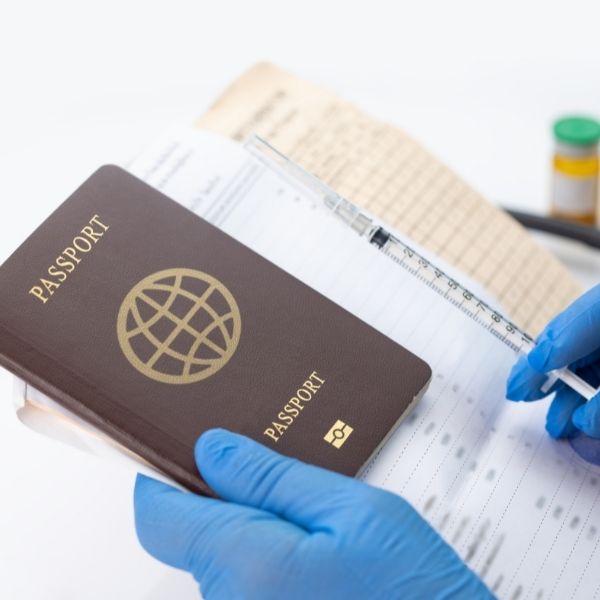
General Travel Vaccination Advice for Zimbabwe
The decision to take a trip to Zimbabwe is your choice and you are responsible for getting all the vaccination you are needed to have ahead of your planned trip to Zimbabwe.
The material on this web page is provided for information only and gathered from travel advice and warnings for Zimbabwe by governments around the world to their citizens.
While we make every effort to give you latest travel advice information, it is provided on an “as is” basis without warranty of any kind, expressed or implied.
This owners of this website does not assume responsibility and will not be liable for any damages in connection to the information provided.
General Vaccination Needed for Zimbabwe
Do I require to inoculation when taking a trip to Zimbabwe? Anyone choosing to embark on holiday or business trip to Zimbabwe require to seek advice from a healthcare specialist or go to a travel health clinic preferably 6 weeks prior to you travel regarding the folloing:
Regular Vaccinations – Be sure that your regular vaccines such as inoculation for measles-mumps-rubella (MMR), diphtheria, tetanus, pertussis, polio, varicella (chickenpox), flu and others are up-to-date despite your travel to Zimbabwe.
Additionally, you might be at risk for these vaccine-preventable diseases when taking a trip in Zimbabwe. Talk with your travel health professional about which of these vaccinations are right for you:
- Covid 19 is a contagious viral disease. It can spread from one person to another by direct contact and also through droplets airborne.
- Hepatitis B A disease of the liver spread through blood or various other bodily fluids. Travellers that might be exposed (e.g., through sexual contact, medical treatment, sharing needles, tattooing, acupuncture or occupational exposure) must get vaccinated.
- Influenza (Flu) Seasonal influenza takes place worldwide is brought on by a virus spread from one person to another when they cough or sneeze or by touching items and surfaces that have been contaminated with the virus.
- Measles is a highly contagious viral disease. It can spread out swiftly from person to person by direct contact and through droplets airborne.
- Tick-borne encephalitis is present in some areas of Zimbabwe and it is a viral disease that affects the central nervous system (brain and spinal cord). It is spread to people by the bite of infected ticks or when you consume unpasteurized milk products.
Is it safer to take a trip to a location with animals in Zimbabwe?
Travellers to Zimbabwe are normally cautioned to keep away from contact with animals, including canines, monkeys, snakes, rodents, birds, and bats. Some infections located in some locations of Zimbabwe, like avian influenza and rabies, can be shared among people and animals.
Whilst taking a trip Zimbabwe, is it safer to drink water in Zimbabwe?
Tourists to any destination on the planet including Zimbabwe can develop travellers’ diarrhea from consuming contaminated water or food.
As food and water can become carries of diseases like cholera, hepatitis A, schistosomiasis and also typhoid, be sure to practice safe food and water precautions while travelling in any part of the globe. Remember: Boil it, cook it, peel it, or leave it!
Travel insurance coverage for Zimbabwe
Health cover is just one of the major reasons travellers get travel insurance. It will not prevent you getting sick or injured, though it can prevent you being affected financially. Medical assistance overseas can be extremely expensive.
You have to shell out for all medical care you receive overseas. You can’t expect to get free or subsidised treatment through your Zimbabwe’s public health system, like you would in your home country.
If you can not pay, local authorities might detain you. The government from your home country can not pay you health care costs for you, loan you money or get you out of jail.
You need travel insurance coverage for travelling to Zimbabwe. You also need to make sure you pick a plan that is right for you.
Read the fine print of your travel insurance policy.
Declare all pre-existing conditions to your travel insurer upfront. If you do not, you might void your travel insurance coverage.
Tell your travel insurance company the activities you plan to do, before you go. Many common activities like skiing are left out in standard policies. You might require to pay additional.
Check if you have complimentary credit card travel insurance coverage. Some cards include travel insurance policy cover. However, they often have different conditions than paid plans. Be aware of the differences.
If you’re going to Zimbabwe from a country that has a reciprocatory healthcare arrangement, you still need travel medical insurance. Agreements are limited in what they’ll will cover.
If you have a terminal illness, you might not have the ability to obtain basic travel insurance. Nevertheless you might have the ability to find a specialised insurer that covers you for health, accidents or property problems unconnected to your disease. Talk to your insurance provider to learn.
Learn more about getting worldwide travel insurance for Zimbabwe before you go.
